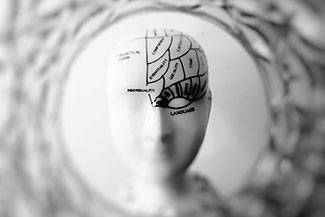Regain Hope Through Neuro-Optometry in Shelburne
Your vision is not just about seeing clearly; it's about your overall well-being. Discover renewed hope and improved quality of life with compassionate neuro-optometric services at Shelburne Primary EyeCare.
From relieving headaches and migraines to restoring visual abilities after a stroke or traumatic brain injury, our personalized approach ensures tailored care for your unique needs. Let us be your partner in regaining stability, balance, and the joy of clear vision.
The Mind-Eye Connection: Neuro-Optometry Explained

|
Neuro-optometry is a specialized branch of eye care that focuses on the intricate relationship between the eyes (optometry) and the brain (neurology). Visual dysfunctions resulting from neurological conditions, injuries, or developmental problems can affect your visual experience and cause specific symptoms, including:
Neuro-optometry deals with assessing and treating these underlying symptoms to restore the patient's visual abilities. |
Discover the Benefits of Neuro-Optometry in Shelburne
Our highly trained neuro-optometrists, Dr. Colette Whiting and Dr. Sandra Gillis-Kennedy understand how the brain processes visual information. They go beyond regular eye exams to diagnose and address complex vision problems, offering their patients renewed hope and improved quality of life.
How Neuro-Optometry Can Alleviate Headaches and Migraines
Life with chronic headaches or migraines can be a constant struggle, impacting everything from work to personal relationships. But did you know that the solution to relief might lie in your vision?
Neuro-optometry can help find the visual dysfunction contributing to your headaches and migraines. Through comprehensive assessments and tailored neuro-optometric rehabilitation therapy, we can target the root causes, alleviating your pain and improving your overall visual function.
Regain Balance: Understanding Vestibular Dysfunction
Are you frequently plagued by dizziness, vertigo, or constant unsteadiness? You might be suffering from vestibular dysfunction, a condition affecting the inner ear’s balance function. The good news is that neuro-optometric rehabilitation therapy can effectively treat these debilitating symptoms.
By conducting a comprehensive evaluation, our neuro-optometrists can help correct the underlying causes of vestibular disorders. We retrain the brain and eyes through personalized treatment plans to improve gaze stability, postural control, and daily living activities. Regain your balance and control of your life by scheduling a consultation today!
Overcoming Traumatic Brain Injury: The Impact on Vision
Traumatic brain injuries (TBI) can profoundly impact your vision, leading to headaches, blurred vision, and reading difficulties, among other challenges. As part of an integrated team approach, neuro-optometric rehabilitation offers effective treatment to address TBI-related visual disorders and promote recovery.
Through personalized treatment plans, including neuro-optometric rehabilitation, Dr. Colette Whiting and Dr. Sandra Gillis-Kennedy aim to retrain your visual system and eliminate post-TBI symptoms. If you or a loved one has experienced a traumatic brain injury, seek specialized neuro-optometric care at Shelburne Primary EyeCare for improved vision and quality of life.

What Others Are Saying About Us
Strokes and Vision: How Neuro-Optometry Can Help
Strokes (cerebrovascular accidents) can lead to various visual impairments due to brain damage. About 60% of stroke survivors develop visual problems, such as double vision, visual field loss, eye movement abnormalities, and sensitivity to light.
Neuro-optometrists like Dr. Colette Whiting and Dr. Sandra Gillis-Kennedy specialize in evaluating and treating post-stroke visual deficits. Through neuro-optometric rehabilitation, they help patients recover visual function, memory, and balance while reducing symptoms like blurriness and dizziness. Neuro-optometry promotes neuroplasticity to establish new brain pathways and aid in stroke recovery.











